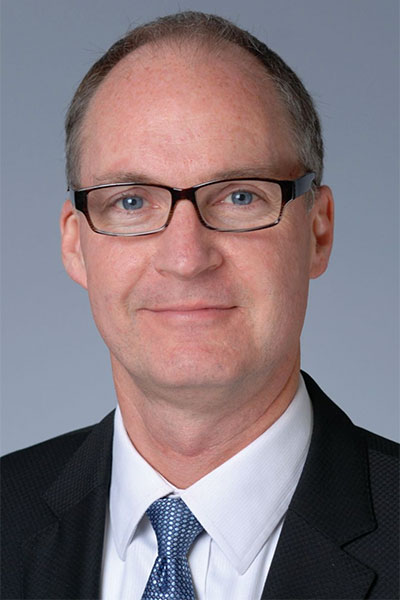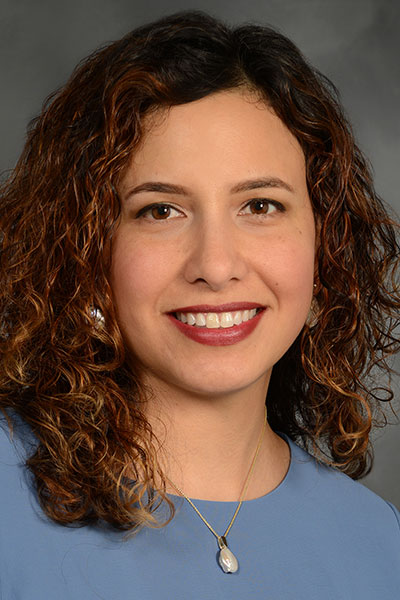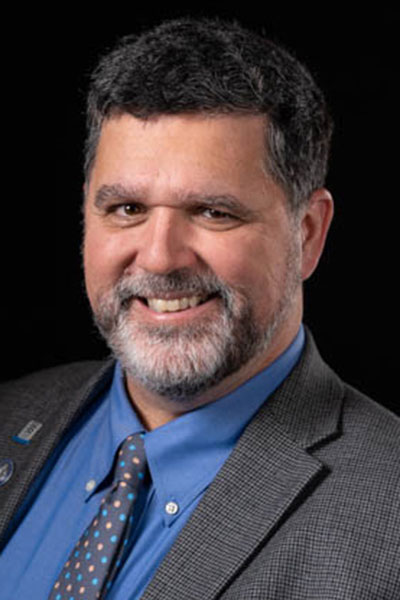Artificial intelligence (AI) and health care will be in the spotlight at CHEST 2024 in Boston, with sessions addressing the topic from big-picture and specific chest medicine perspectives.

CHEST President, Jack D. Buckley, MD, MPH, FCCP, said the goal will be to learn more about how AI can be a useful tool and to anticipate potential concerns.
“We’re thinking about it at an individual level, but also as a professional group,” Dr. Buckley said. “Exploring all the different ways that AI could help, while also being a bit cautious and making sure that we’ve got the proper guardrails and safety features in play.”
Lisa K. Torres, MD, Assistant Professor at Weill Cornell Medical College, will chair an overview session, The Emergence of Artificial Intelligence in Health Care: Where We Are and Where We Are Going, on Wednesday, October 9, at 8 am ET.

Dr. Torres said clinicians tend to make decisions using data obtained with technologies that they understand, so they accept that data as valid and reliable. A lack of knowledge about how AI generates data—coupled with substantial and sometimes misleading hype—often leads to a lack of trust. For these reasons, it is important to develop provider training and educational programs to support health care AI, Dr. Torres said. At the same time, the implementation of AI requires careful consideration regarding accountability, transparency, adequate permissions, and privacy protections.
“There’s so much to consider about AI, and it’s just a 1-hour session, but we’re going to do our best to do a very broad overview of all these different facets so people can start to have those conversations within their health care communities,” she said.
Several sessions will focus on AI in different clinical areas: Pulmonary Nodule Management and AI: From Deep Learning to Clinical Integration, on Sunday, October 6, at 1:30 pm; AI in ILD Imaging—The Future Is Here, on Monday, October 7, at 8 am; and Role of AI in Chest Infections, on Wednesday, October 9, at 9:15 am.

Integrating AI into lung nodule evaluation and predictive modeling enhances diagnostic precision and enables personalized treatment plans, said Danai Khemasuwan, MD, MBA, FCCP, Director of the Interventional Pulmonology Fellowship Program in the Division of Pulmonary Disease and Critical Care Medicine at Virginia Commonwealth University, and Chair of the Sunday session on pulmonary nodule management. Deep-learning algorithms and predictive models are being developed to analyze CT scans with unprecedented accuracy and identify early-stage lung cancers that might be missed by traditional methods. AI-powered predictive modeling can also incorporate patient data from electronic health records to forecast disease progression and response to treatment.
“This session will also cover ethical, legal, and social implications that will be addressed to ensure responsible AI adoption, maintaining patient privacy and regulatory compliance,” Dr. Khemasuwan said.
Experts who are at the forefront of integrating AI into medical practice and education will also want to attend the session, AI in Medical Education: Hope, Hype, and a Rational Path Forward, on Monday, October 7, at 3:15 pm.

The session will help demystify AI and address common concerns about its implementation, such as the impact on the clinician-patient relationship and the shift of certain duties to AI, said Session Chair, Christopher L. Carroll, MD, MS, FCCP, Professor in the Department of Pediatrics at the University of Florida College of Medicine, Jacksonville, and Regent-at-Large on the CHEST Board of Regents. Real-world examples and case studies will illustrate the tangible benefits and limitations of AI and help attendees distinguish its current capabilities from future possibilities.
“AI has the potential to assist in real-time data analysis, predictive analytics, and decision support, which could improve outcomes,” Dr. Carroll said. “AI can help in automating routine tasks and could allow physicians to focus on more critical aspects of patient care. As AI becomes more integrated into health care, it’s important for physicians to understand and leverage these tools.”
Join us at CHEST 2025
Save the date for the next Annual Meeting, October 19 to 22, 2025, in Chicago. CHEST 2025 will explore the latest advancements in pulmonary, critical care, and sleep medicine, with a focus on innovation and the future, just as the city itself embodies progress and reinvention.





